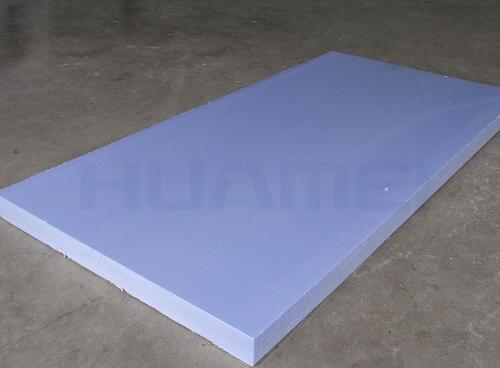XPS panels, short for Extruded Polystyrene panels, are a type of rigid foam insulation widely used in various construction and insulation applications. These panels are known for their excellent thermal insulation properties, moisture resistance, and versatility. Here's a comprehensive overview covering everything you might want to know about XPS panels:
Composition and Manufacturing:
XPS panels are made from polystyrene, a synthetic polymer, through a process called extrusion. During extrusion, polystyrene pellets are melted and mixed with a blowing agent, which causes the material to expand and form a foam. The foam is then extruded through a die to create panels with a closed-cell structure.

Properties and Advantages:
Thermal Insulation: XPS panels have a high R-value per inch, indicating their excellent thermal resistance. This property helps to effectively reduce heat transfer through walls, roofs, and floors, contributing to energy efficiency in buildings.
Moisture Resistance: The closed-cell structure of XPS panels makes them highly resistant to moisture absorption. This property ensures the insulation's long-term effectiveness even in damp or humid environments.
High Compressive Strength: XPS panels are relatively strong and can withstand compressive forces, making them suitable for applications that require load-bearing capabilities, such as under-slab insulation.
Dimensional Stability: XPS panels are known for their dimensional stability over time. They don't shrink or expand significantly with temperature changes, maintaining their insulation performance.
Resistance to Rot and Decay: Unlike some other insulation materials, XPS panels are not prone to rot or decay. This attribute enhances their durability and lifespan.
Ease of Installation: XPS panels are lightweight and easy to cut and shape, allowing for straightforward installation. They can be affixed to various surfaces using adhesives, mechanical fasteners, or specialized systems.
Fire Resistance: XPS panels are inherently flame-resistant due to their composition, and they can have fire-retardant additives to enhance their fire performance.
Versatility: XPS panels find applications in a wide range of scenarios, including roofing, wall insulation (both interior and exterior), under-slab insulation, foundation walls, and more.
Common Applications:
XPS panels are used in various sectors and scenarios, including:
Residential Construction: Insulating walls, roofs, and floors in homes.
Commercial Construction: Insulating commercial buildings, offices, and warehouses.
Industrial Settings: Insulating refrigeration units, cold storage facilities, and industrial equipment.
Infrastructure Projects: Insulating roads, highways, bridges, and tunnels.
Environmental Considerations:
XPS panels are not as environmentally friendly as some other insulation materials, as they are made from petroleum-based materials and can be challenging to recycle. However, efforts are being made to develop more sustainable formulations and recycling processes for XPS.
In summary, XPS panels are a versatile insulation solution with exceptional thermal performance and moisture resistance. They find applications in a wide range of industries and are valued for their durability and ease of installation. As technology advances, the industry continues to explore ways to enhance the sustainability of XPS panels and their manufacturing processes.
Previous: Explore the miracle of glass wool
Next: Understanding the Distinction: Mosaic Tile vs. Porcelain
Copyright:@2020-2021
Comments Please sign in or sign up to post.
0
0 of 500 characters used